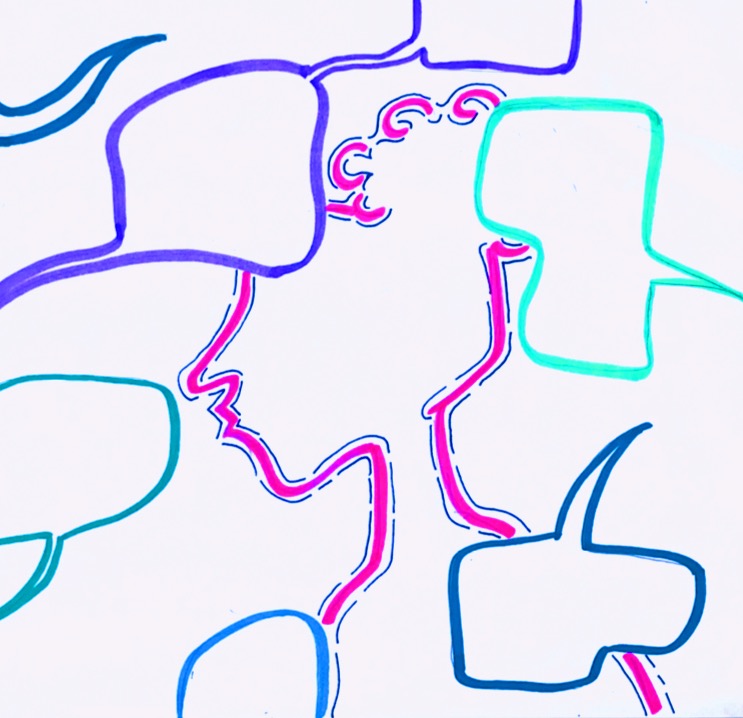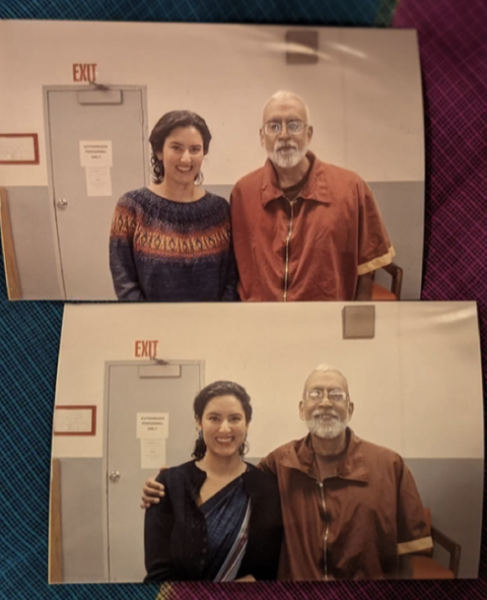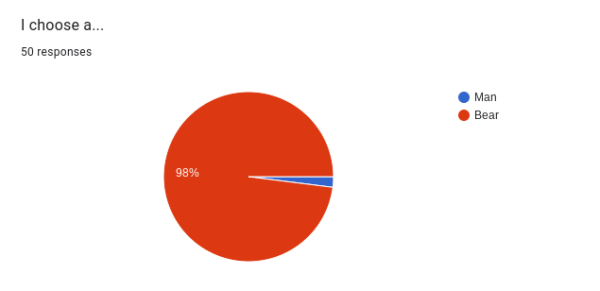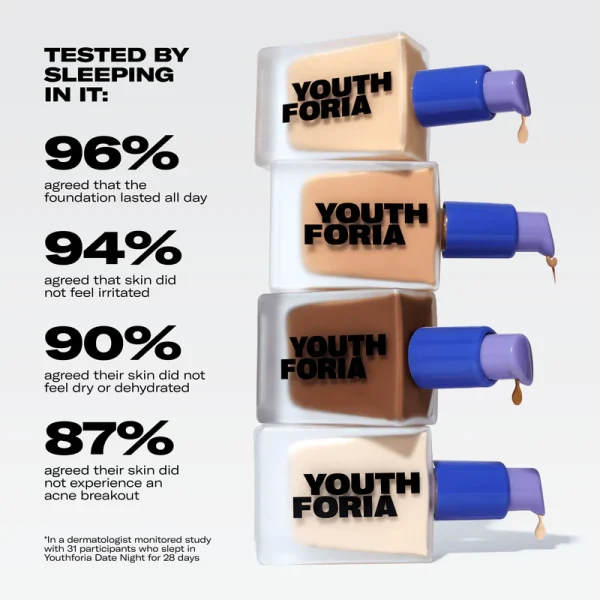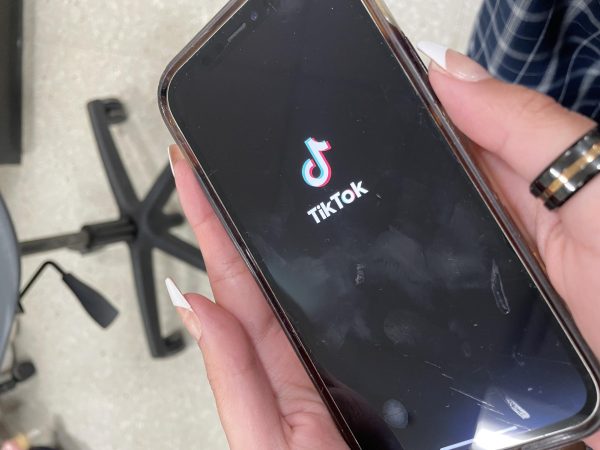Dear White Feminism
July 25, 2022
Dear White Feminism,
Before I begin this letter, I would like to clarify who I am addressing. I am not writing to white women. I am not writing to feminism. White feminism, however, is a term used to describe expressions of feminism which focus on white women, while failing to address distinct forms of oppression faced by women of color. As a woman of color, femininity has always meant something different to me and my peers compared to white women. Therefore, feminism has also taken on a different shape, and a different role for me.
I am Latina. More specifically, I am Puerto Rican. More importantly, I am visibly Hispanic. These factors of my identity have always been a source of pride for me. I love my culture, my family, my race, and my roots. I have never explicitly wished to be born any different. However, there is a difference between wanting to be white, and wanting the treatment of being white. Subconsciously, the battle in my mind between craving the acceptance of white girls and suppressing my own insecurity was never more prominent than during my elementary and middle school years.
Like most kids, I began to grow body hair around the age of ten or so. My leg hair was (and is) dark, black, and noticeable. Unlike many of the popular, pretty girls in my school, my body hair was not light, blonde, or something that went unnoticed. Truthfully, I couldn’t have cared less about this development when it first appeared. I was too focused on drama club, choir, orchestra, middle school drama, my social studies homework, or new episodes of my favorite shows. But like many of my physical insecurities, they stemmed not from myself, but from others. I wasn’t conscious of the fact that having hairy legs, as a girl, was something undesirable, until it was pointed out to me.
I can’t quite remember if it was fourth or fifth grade when I walked into school one day and joined a group of my friends. I had worn pink denim shorts that day, which I remember very clearly. One of the boys glanced at me, and I watched his eyes travel to my legs. He began to laugh, incredulously. “Elisa has more leg hair than any of the boys,” he announced, and I felt eyes stick to me, “you kind of look like a monkey.” My face flushed, and although I couldn’t tell you any more details about the scene, I know exactly how the heat flooding my body felt. I remember this off-hand comment word for word, though I’m sure it left his mind minutes later. I laughed it off because everyone else did. No one seemed to mind his words, so I felt that if I were to make them a problem, I would be making an imposition. I didn’t want to be a crybaby, and I didn’t want to be sensitive or dramatic. I hated when people called me that. So I laughed it off. But I still remember the sting, and even many years later, that memory is crisp. Exactly why, I couldn’t tell you. I know he didn’t mean harm; few fourth graders are malicious, but many are unaware and insensitive. I know I probably made a million insensitive comments as a child, not because I was intentionally mean, but because children often haven’t fully developed empathetic social skills until later in life.
My white female friends, who were generally wonderful to me, also pointed out my hair on occasion, whether it was my arms or my legs or my armpits or my eyebrows. They did so without malice. I don’t think they realized how ashamed I began to grow in my body. Since no one ever had said the same to them, I genuinely believe they didn’t understand the impact their offhand comments had. How could they?
I began shaving before any of my friends even considered touching a razor, which was something I found both embarrassing and difficult. Since I started before them, I didn’t know how to approach it, and I felt too embarrassed to ask even my own mom for help. I resented the fact that I had to undertake these extra steps to avoid being called out in class.
Near the end of the 19th century, waves of Southern and Eastern European immigrants entered the US, sparking an intense cultural backlash. Efforts to medicalize and demonize excessive body hair began to shape a modern beauty standard that would alienate immigrant women with different features and more body hair.
The truth is, whether or not I had heard these comments from my classmates or friends growing up, I still would have developed my insecurities in the same way. No one has to tell you you’re unattractive or ugly to feel unattractive or ugly when the world around you has confirmed it in its own ways. From shaving commercials, to advice columns, to skin bleaching creams sitting on my grandmother’s countertop, everywhere existed an enforcement that the body I was born in had to be altered to be acceptable.
As I grew and became older, I slowly realized that my relationship with my body, and the way others perceived it, was beginning to change. For girls of any race, sexualization and objectification is a universal experience. However, as a Latina, the expectation of my sexuality feels different due to my race. In some eyes, I am exotic. The fact that I was born in Silverspring, Maryland, and raised in State College, Pennsylvania (arguably the two least exotic places I could dream up) does not seem to change this. Some might wonder why being called exotic or sexy is a bad thing. Isn’t it a compliment, to be called attractive? In some cases, yes. But the context and connotation of certain adjectives changes their meaning.
The blame for sexualizing Latina culture, to me, is on the white male gaze. This does not mean it is every white man’s fault, or that other people cannot also perpetuate it. But from Disney shows to classic novels to the porn industry, Latinas have been reduced down to sexual, sassy, characters with little else to offer.
I enjoy watching the show Modern Family from time to time. I think it’s witty and entertaining, and I like the cast of characters, especially for the fact that they are all a bit unconventional. I always loved the character Gloria the most when I was younger, because she was feisty and fun-loving and had a beautiful Colombian accent. I liked her boldness. However, from time to time, I also find myself feeling a little embarrassed by her character. I cringe in the scenes where her portrayal is especially stereotypical; she is comic and visual relief, made for the audience to laugh at and admire physically. The hypersexualized and often degraded and humiliated “spicy Latina.”
Representation in the media is impactful because it shapes the way we view ourselves. Young Latina girls viewing this image of themselves in show after show after show results in a need to fill the role they’ve been assigned. Hyper-sexualization is harmful to everyone, but particularly young women. According to the American Psychological Association, sexualization of this kind is linked to mental health disorders, body dysmorphia, low self-esteem, and impaired cognitive performance. Stereotypes, like the “spicy Latina,” are proven to increase rates of dating violence and victimization, as well as sexual harassment towards young women. If we present Latina women as objectified sexual creatures, it follows that viewers will internalize this image and project it in their lives. This can also lead to higher rates of disordered eating.
Behavior wise, Latinas face different stereotypes than white women. While white women are stereotyped to be overly sensitive and emotional, Latinas are expected to be aggressive, sassy, or emotionally restricted. In many Hispanic communities, there exists two gender-based stereotypes, referred to as Machismo (masculinity) and Marianismo (femininity). Machismo can be described as strong or aggressive masculine pride. Marianismo, it’s female counterpart, emphasizes the role of women as family and home-centered; it encourages self-sacrifice and chastity. Hispanic women, like other women, are expected to be spiritual, nurturing pillars of a family. However, Latinas are not welcomed to be emotionally vulnerable and open in the same way white women are. Instead, they bear the responsibility of being strong for others, especially in a family. Strong, stoic, unfeeling heads of households whose purpose is to provide and care. Studies have suggested that the cultural script of Marianismo may be associated with health outcomes in Hispanic women (Cianelli, Ferrer, & McElmurry, 2008), including less emotional well-being (Murguia, 2001) and increased negative emotions, particularly with regard to higher depression symptoms (Cano, 2003; Piña-Watson, Castillo, Ojeda, & Rodriguez, 2013).
Women of color, especially Black women, have a history in this country of being left out of feminist movements. Repercussions from this still exist today, causing many women of color to feel isolated from white women and feminism as a whole. Even tracing back to the 1848 Seneca Falls Convention, the founders of the feminist movement primarily wanted one goal; shared power over systems with men. The right to vote was one of the most concrete ways for feminists of the time to work towrads this goal. However, while white women were awarded the right to vote in 1920, Black women would not have this protection until decades later, in 1965.
According to PBS, “The federal suffrage amendment prohibited discrimination on the basis of sex, but it did not address other kinds of discrimination that many American women faced: women from marginalized communities were excluded on the basis of gender and race. Native American, Asian American, Latinx and African American suffragists had to fight for their own enfranchisement long after the 19th Amendment was ratified. Only over successive years did each of those groups gain access to the ballot.”
“Latinx women contributed to the success of the suffrage movement at both the state and federal levels, particularly with their efforts to reach out to Spanish-speaking women. And in Puerto Rico, suffragists like Luisa Capetillo worked to attain women’s voting rights, which were first given to literate women in 1929 and all Puerto Rican women in 1935.”
Literacy tests were uniquely effective and discriminatory towards Hispanic and other ethnic women. Tests kept them from voting long after the federal amendment was passed. Women who rely heavily on languages other than English were not protected legally until 1975, when an extension of the Voting Rights Act prohibited discrimination against them.
Since the beginning of the word “feminism,” a large cast of women have been shut out. Trans women, for example, have been let down by the feminist movement for the majoriy of its existence. This has happened so much so that there is even a term specifically created to name trans-exclusionary-“radical”-feminists; “Terfs.” I put “radical” in quotation marks here, because truthfully, what is so radical about only supporting activism that reflects your identity? Nothing. There is nothing radical, to me, about white women in pink that fight only for themselves. There is nothing radical about Latinas who do not also fight for our Black, Indigenous, South-Asian, or Asian sisters. There is nothing radical about gay women who do not also defend trans women from hate or discrimination.
In my eyes, a movement cannot be both progressive and exclusionary. They are mutually exclusive terms. Lifting up the voices of the oppressed does not stop or end in one place or person. I am not perfect; I too, get caught up in my own identity, and have forgotten others before. But this is not something we strive for in spaces of activism and action.
So in the future, White Feminism, I do not hope to see you any time soon.
Sincerely,
Elisa

